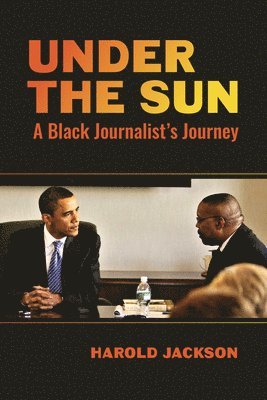Kommande

489:-
Andra format:
- Inbunden 2339:-
An engrossing and illuminating memoir by Pulitzer Prize-winning journalist Harold Jackson, Under the Sun: A Black Journalists Journey chronicles Jackson's life, career, challenges, and triumphs.
- Format: Pocket/Paperback
- ISBN: 9780817362089
- Språk: Engelska
- Antal sidor: 176
- Utgivningsdatum: 2025-04-15
- Förlag: The University of Alabama Press

